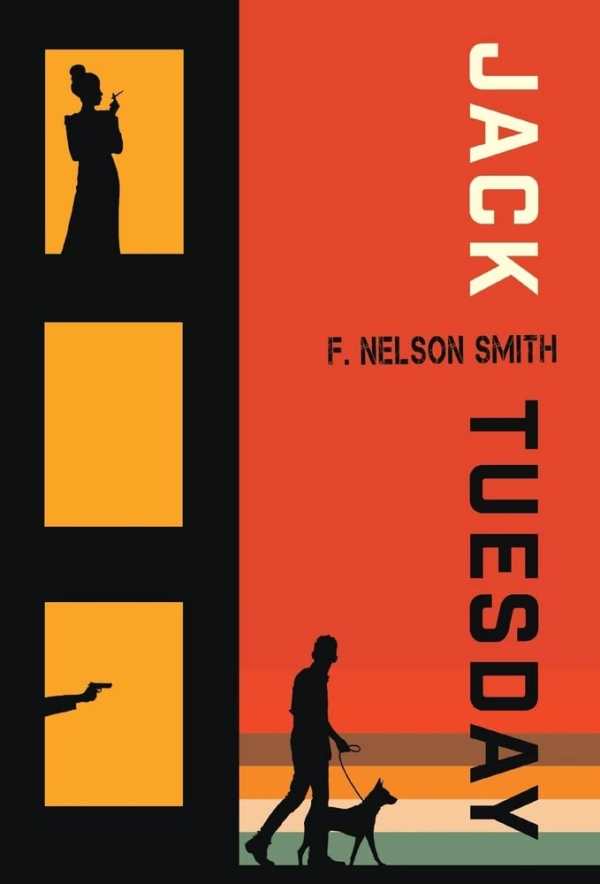Jack Tuesday
With satisfying nods to postwar intrigue, Jack Tuesday is a thrilling police procedural novel in which a dedicated detective is subjected to dark suspicions.
In F. Nelson Smith’s engrossing mystery novel Jack Tuesday, a detective’s ambiguous origins and memory loss fuel a murder inquiry.
Jack Tuesday—a man who renamed himself to mask his criminal family’s past—is a detective in 1970s Edmonton. His partner, Brodie, was killed in the course of their police work. Jack is under investigation from internal affairs, believed to be the “dirty cop” who was responsible for Brodie’s death. But Jack can’t remember what happened. A psychiatrist, Dr. Pavic, also probes Jack’s story, and someone unknown is tailing him.
Jack is developed as a quintessential dedicated detective: he sizes up his surroundings with ease, holds his cards close, and is troubled by memories of his time in a Royal Canadian armored regiment and his service in Korea. In the book’s everyday scenes, Jack walks his dog and visits Dr. Pavic. He is reluctant to divulge his secrets. He thinks that he hears Brodie’s voice. His personal relationships are few, and his mindset is fixed. He makes the calculations required to stay ahead of danger, and he learns that Brodie had been pursuing his own leads.
Jack’s sleuthing methods are traditional: he undertakes a stakeout; he meets with colleagues on the street. He also contends with a biker gang, an elderly neighbor, and details of the resistance in Yugoslavia. Intricate truths lurk just beyond his grasp; the disparate strands of his investigation, and the set-aside clues (as with a curious note about Dr. Pavic’s daughter), lead to meandering passages before they’re tied together.
Jack’s thoughts are terse. Suspense about when his memory might return heightens once he meets a reporter, who fills in helpful details. Hints about police complicity are introduced at a steady rate to add to the book’s growing sense of menace. A second and a third murder take place, and Jack’s biased colleagues are in charge of investigating. His doubt-laced interactions with fellow police officers reveal a tight institution in which the perception of broken trust casts long shadows.
The book’s atmosphere is rich. Here, long-ago events influence the present, becoming potent in the book’s last acts. Jack’s past catches up to him; it’s an an unexpected twist that leaves room for fresh beginnings.
With satisfying nods to postwar intrigue, Jack Tuesday is a beguiling mystery novel in which a persecuted detective works to exonerate himself.
Reviewed by
Karen Rigby
Disclosure: This article is not an endorsement, but a review. The publisher of this book provided free copies of the book and paid a small fee to have their book reviewed by a professional reviewer. Foreword Reviews and Clarion Reviews make no guarantee that the publisher will receive a positive review. Foreword Magazine, Inc. is disclosing this in accordance with the Federal Trade Commission’s 16 CFR, Part 255.


